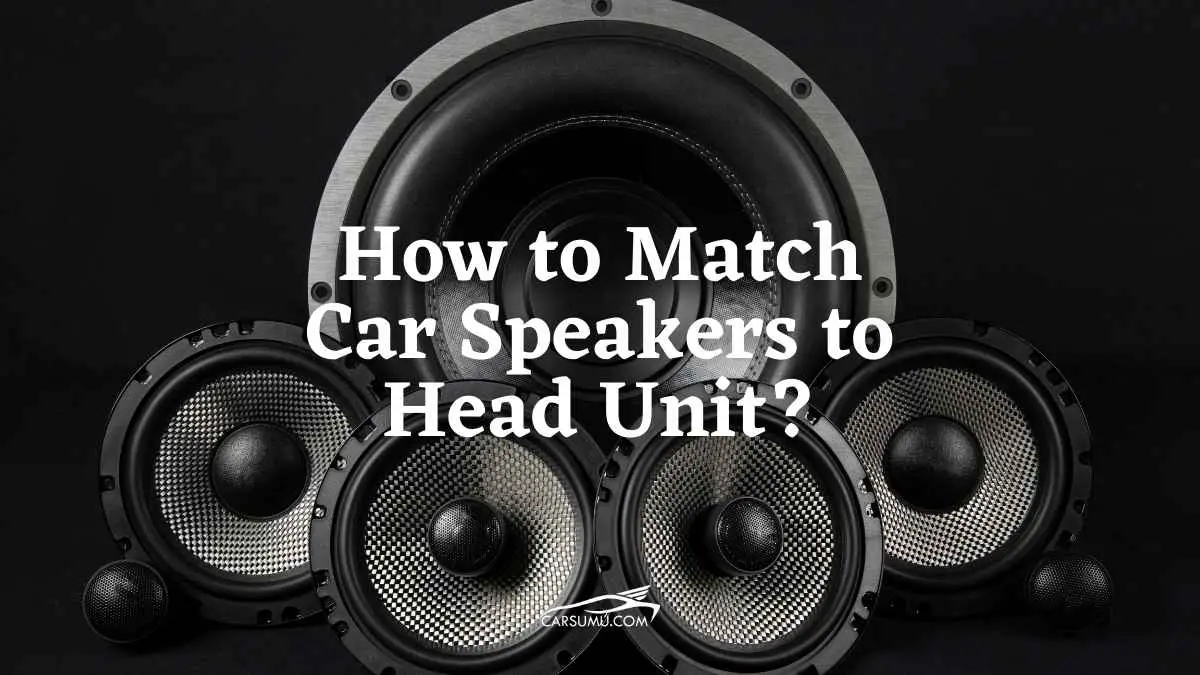It can be a daunting task to try and match car speakers to a head unit. With all of the different sizes, brands, and specifications available on the market, it can be hard to know where to start.

In this article, we will provide you with some tips on how to make the process easier.
Why should you match speakers to a head unit?
There are a few reasons why it is important to match speakers to a head unit. The first reason is that the speaker and the head unit will be compatible with each other. This means that they will both be able to produce sound at the correct frequency levels, and they will be able to work together properly.
The second reason is that the sound quality will be better if the speakers are matched to the head unit. If the speakers and head unit are not compatible, then you may experience distortion or even damage to your audio equipment.
How do you match car speakers to a head unit?
There are a few things that you need to take into consideration when matching car speakers to a head unit. The first is the size of the speaker. You need to make sure that the speaker will fit in your car before messing up with the technical stuff.
The second is the impedance of the speaker. The impedance is how much resistance a speaker has to an electrical current. Most head units can handle a wide range of impedances, but it is important to check before you purchase speakers.
The third thing to consider is the wattage of the head unit. This will determine how much power your speakers will be receiving. Make sure that the wattage of your head unit and speakers are compatible. If you buy a speaker that is less powerful than the stereo output, there is a chance that the speaker will go bad or won’t perform well.
Fourth, you need to consider the type of connector that your head unit uses. There are a few different types of connectors available, so you will need to make sure that the connector on your head unit matches the connector on your speakers.
Finally, you should consider the sound output of the speakers. You should get speakers that are rated with high SPL numbers. The higher, the better. Especially, if the stereo is not much powerful, high SPL speakers will be able to crank up good sound compared to a low SPL speaker.
Once you have considered all of these factors, you should be able to find a set of car speakers that are compatible with your head unit. Remember to always check the specifications of both the head unit and the speakers before making a purchase.
How many watts should the speaker have?
The wattage of the speaker should be equal to or greater than the wattage of the head unit. If it is not, then there is a chance that the speaker will not work or will be damaged.
For example, if the stereo output is 25 watts per channel, then the speaker shouldn’t be less than 25 watts.
What type of car speakers do you need for your car?
There are a few different types of car speakers that you can choose from. The most common type is the coaxial speaker. This type of speaker has two drivers in one housing- a tweeter and a woofer.
Another common type of speaker is the component speaker. This type of speaker has three drivers- a tweeter, a midrange, and a woofer. It is usually used in high-end cars because it produces better sound quality than the coaxial speaker.
Finally, there is the subwoofer. This type of speaker is used to produce low-frequency sounds. It is usually placed in the trunk or under the seat of the car.
Conclusion
Matching speakers to a head unit is one of the first steps toward a successful car audio setup.
There are a few things to consider when matching car speakers to a head unit. Make sure that the size, impedance, wattage, and connector type of the speaker match that of the head unit. Also, make sure that the sound output of the speaker is high. Once you have considered all these factors, you should be able to find a set of compatible car speakers.